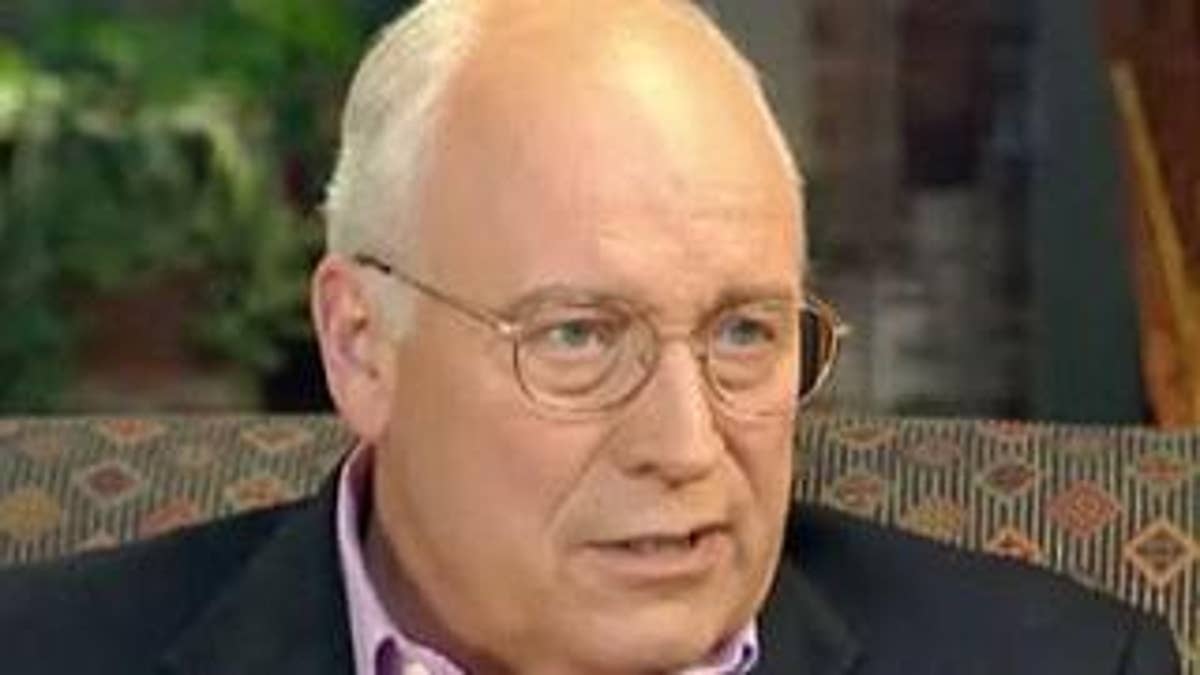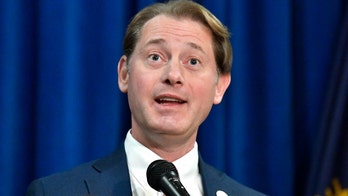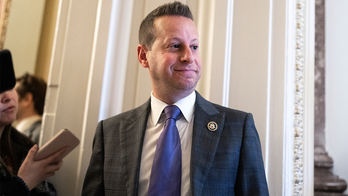
Former Vice President Dick Cheney said Wednesday that the Bush administration had developed a new strategy on the war in Afghanistan before leaving office -- a strategy that he said "bears a striking resemblance" to the one announced by President Obama in March.
In a speech to the Center for Security Policy, Cheney said the Bush administration handed Obama's transition team a policy review of the Afghan war conducted last fall to meet the new challenges posed by the Taliban.
"They asked us not to announce our findings publicly, and we agreed, giving them the benefit of our work and the benefit of the doubt," Cheney said.
Cheney's comments countered a recent claim by White House Chief of Staff Rahm Emanuel that the Obama administration had to form an Afghan war strategy from scratch because the Bush administration hadn't asked any key questions about the war and left it "adrift."
The comments add more fuel to the ongoing war of words between the former vice president and Obama administration officials over the current administration's national security policies, including the Justice Department's probe into alleged abuse of terror suspects by the Bush CIA and the president's plan to close the military prison at Guantanamo Bay.
Obama is currently debating whether to ramp up war at the request of his military advisers or scale back the effort and focus on going after Al Qaeda in Pakistan, as some of his political advisers are urging.
Gen. Stanley McCrystal, the top U.S. commander in Afghanistan, is reportedly seeking up to 40,000 additional troops on the ground where there are currently 68,000 U.S. soldiers.
Cheney called on Obama to support his military commander.
"The White House must stop dithering while America's armed forces are in danger," he said.
"Make no mistake, signals of indecision out of Washington hurt our allies and embolden our adversaries," he added. "Waffling, while our troops on the ground face an emboldened enemy, endangers them and hurts our cause."
White House spokesman Robert Gibbs said Cheney's statement was "curious."
"I think it's pretty safe to say that the vice president was for seven years not focused on Afghanistan," he said Thursday. "Even more curious, given that an increase in troops sat on desks in this White House, including the vice president's for more than eight months -- a resource request filled by President Obama in March."
"What Vice President Cheney calls 'dithering', President Obama calls his solemn responsibility to the men and women in uniform and to the American public," he said. "I think we've all seen what happens when somebody doesn't take that responsibility seriously."
Obama has drawn sharp criticism from conservatives who argue that the deliberations are playing into the hands of the Taliban and damaging the morale of the U.S. troops fighting there.
Obama has said he will make a decision soon, possibly before Nov. 7 runoff election between Afghan President Hamid Karzai and his rival Abdullah Abdullah.
Emanuel told CNN that the president is "asking the questions that have never been asked on the civilian side, the political side, the military side and the strategic side."
"It's clear that basically we had a war for eight years that was going on, that's adrift, that we're beginning at scratch, just at the starting point...and that there's not a security force, an army, and the types of services that are important for the Afghans to become a true partner."
In his speech Wednesday, Cheney prodded Obama to pursue the strategy he unveiled in March.
"They made a decision -- a good one, I think -- and sent a commander into the field to implement it," Cheney said, referring to McChrystal, who was chosen in May by Obama to lead the fight in Afghanistan.
"Now they seem to be pulling back and blaming others for their failure to implement the strategy they embraced," he said. "It's time for President Obama to do what it takes to win a war he has repeatedly and rightly called a war of necessity."
In March, Obama ordered 4,000 more troops into Afghanistan, bringing the total then to 21,000 additional soldiers since he took office.
"So I want the American people to understand that we have a clear and focused goal: to disrupt, dismantle and defeat Al Qaeda in Pakistan and Afghanistan, and to prevent their return to either country in the future," he said at the time.
But rapidly deteriorating conditions and a widely disputed and unresolved election in Afghanistan gave the Obama administration pause and led to the current policy review.
"Having announced his Afghanistan strategy last March, President Obama now seems afraid to make a decision, and unable to provide his commander on the ground with the troops he needs to complete his mission," Cheney said.
House Speaker Nancy Pelosi criticized Cheney for asserting that Obama is "afraid" to make a decision.
"That's really not a dignified statement," she said Thursday. "The president has a very difficult decision to make. I don't think that's a constructive comment to make."




